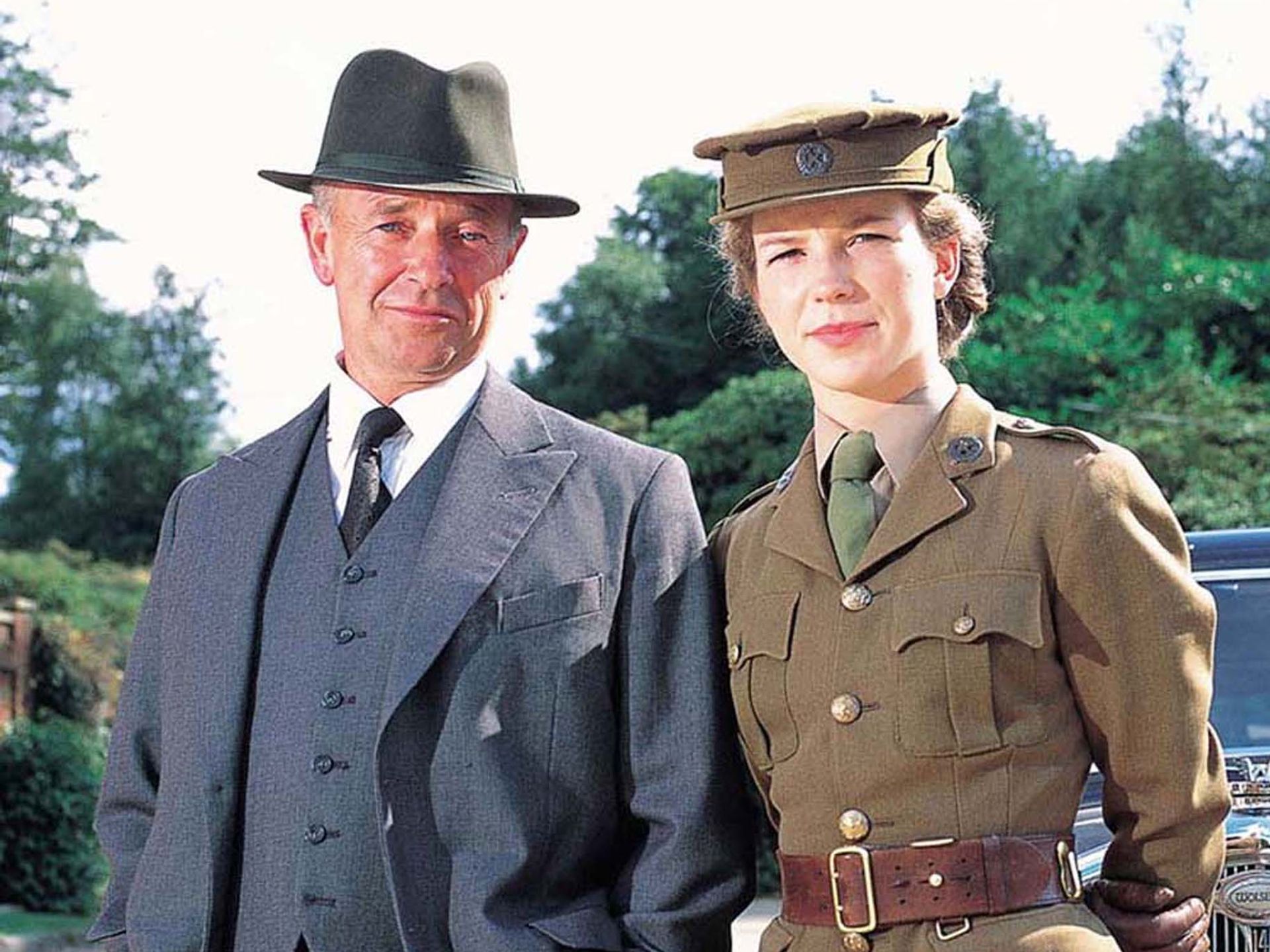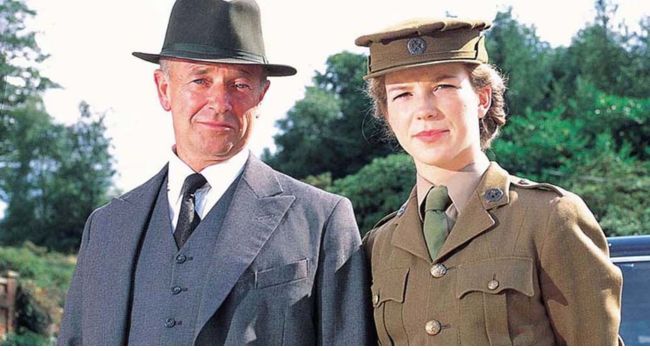British TV’s Hidden Masterpiece?! World War II Detective Drama From Midsomer Murders Creator Returns to Netflix With Shocking Twists, Dark Secrets, and Unforgettable Suspense That Will Leave Viewers Breathless

In the dim glow of wartime blackout curtains, where the hum of distant air raid sirens underscores the fragility of everyday life, a quiet revolution in British television took root. Foyle’s War, the understated yet profoundly gripping detective series created by Anthony Horowitz—the mastermind behind Midsomer Murders and Agatha Christie’s Poirot—has long been a cult favorite among fans of intelligent, character-driven mysteries. Now, in a move that’s sending ripples through streaming enthusiasts, all eight seasons of this acclaimed drama have landed on Netflix as of October 22, 2025, marking its first major UK streaming revival in a decade. For newcomers and devoted viewers alike, this is the perfect October binge: a chilling blend of historical authenticity, pulse-pounding suspense, and moral quandaries that expose the shadowy underbelly of Britain’s Home Front. Step into the fog-shrouded streets of 1940s Hastings, where Detective Chief Superintendent Christopher Foyle unravels crimes that hit closer to home than the bombs falling from the sky.
Imagine a world where murder isn’t just a personal tragedy but a symptom of a nation’s unraveling soul. Foyle’s War doesn’t glorify the Blitz-era heroism of propaganda posters; it dissects it. Premiering on ITV in 2002 as a spiritual successor to Inspector Morse, the series was born from Horowitz’s desire to humanize the “forgotten war” on the home front. With John Thaw’s passing leaving a void in British detective lore, Horowitz crafted a protagonist who embodies stoic integrity amid chaos. The show ran for 28 feature-length episodes until 2015, spanning from the height of World War II to the tense dawn of the Cold War. It was unceremoniously canceled in 2007 after its seventh series, only to be resurrected by fan outcry—7.6 million viewers flooded ITV with letters, demanding more. That revival delivered three final, even darker seasons, cementing Foyle’s War as a testament to television’s power to confront uncomfortable truths.
At the heart of this masterpiece is Michael Kitchen’s portrayal of Christopher Foyle, a widower and decorated World War I veteran who’s been sidelined from active duty due to a bureaucratic quirk. Fedora perched low over his piercing eyes, Foyle pedals his bicycle through the quaint seaside town of Hastings—a stand-in for the real wartime tensions of southern England. He’s the epitome of understated brilliance: soft-spoken, with a dry wit that slices through deception like a bayonet. Kitchen, a veteran of stage and screen known for roles in The Ruskin and The KBV Affair, imbues Foyle with a quiet ferocity. “He’s a fixed point in an uncertain universe,” as Los Angeles Times critic Mary McNamara once described him, a moral anchor in a sea of compromise. Foyle’s investigations often clash with higher-ups in the military or intelligence services, who view his dogged pursuit of justice as an inconvenient distraction from the “greater good.” Yet, he persists, uncovering not just killers but the systemic rot festering beneath the Union Jack.
Flanking Foyle is his indispensable assistant, Samantha “Sam” Stewart, played with effervescent charm by Honeysuckle Weeks. Transferred from the Mechanised Transport Corps, Sam starts as Foyle’s eager driver—a role that evolves into a surrogate daughter dynamic laced with sharp banter and unspoken loyalty. Weeks, who drew inspiration from her own family’s wartime stories, brings a posh-yet-plucky energy to Sam, making her the emotional core of the series. “Sam’s journey from wide-eyed enthusiast to a more mature, resilient woman mirrors the war’s toll on ordinary lives,” Horowitz noted in a 2013 interview. Rounding out the core trio is Detective Sergeant Paul Milner (Anthony Howell), a principled officer grappling with his own war wounds—both physical from Dunkirk and emotional from a strained marriage. Their interplay forms the series’ backbone, a trio bound by respect and quiet affection, navigating ration books, blackouts, and betrayals.

What elevates Foyle’s War from standard whodunit to “hidden masterpiece” is its unflinching historical lens. Horowitz, a meticulous researcher, weaves real events into fictional murders, transforming each episode into a microcosm of wartime Britain’s moral ambiguities. Early seasons plunge viewers into the Home Front’s gritty realities: black marketeering, conscientious objectors facing vigilante justice, and the prejudice against refugees mistaken for spies. Take the series premiere, “The German Woman” (2002), where Foyle probes a suspicious suicide amid a German internment camp, exposing profiteering and xenophobia that echo the real indignities suffered by “enemy aliens” in 1940. The episode’s twist—that the victim was no traitor but a victim of forged documents—delivers a gut-punch, reminding us how fear warps truth.
As the series progresses, the suspense thickens with shocking twists that linger long after the credits roll. Horowitz excels at misdirection, layering subplots like rationed onions: a seemingly isolated murder unravels threads of espionage, corruption, and personal vendettas. In “War Games” (2003), a burglary during military maneuvers conceals a Nazi sympathizer’s plot, culminating in a revelation that upends alliances and leaves Foyle questioning the valor of “victory.” Critics praise these turns for their intelligence; as one IMDb reviewer notes, “The twists keep you guessing without becoming convoluted, always tying back to the human cost of war.” But it’s the dark secrets that truly breathless: episodes like “Casualties of War” (2007) confront the ethical horrors of secret weapons research, with Foyle’s godson emerging as a shell-shocked casualty of experimental bombs. The finale’s shock—a betrayal by a trusted ally—ranks among the series’ most harrowing, forcing viewers to grapple with whether justice can survive in a world of “necessary evils.”
The later seasons, set in the post-war malaise of 1945-1947, shift to an even bleaker palette, trading cozy Hastings for the intrigue of MI5 in a ration-weary London. Foyle, now semi-retired, is thrust into Cold War shadows: protecting ex-Nazis for their “useful” intelligence, as in “Sunflower” (2013), where a war criminal’s protection sparks a web of fraud and vengeance. These episodes grow “shockingly bleak,” as CrimeReads observed, stripping away the nostalgic veneer to reveal a Britain haunted by its compromises—atomic secrets, Soviet spies, and the psychic scars of victory. The final arc, “Elise” (2015), indicts the Special Operations Executive’s real-life bungles in occupied Europe, with Foyle avenging agents betrayed by bureaucratic incompetence. It’s a moving send-off, blending heartbreak and resolve, as Ellie Haddington’s steely Hilda Pierce gets her “my way” exit.
Visually, Foyle’s War is a period drama purist’s dream. Filmed on location in Dublin and the Kent countryside (standing in for Hastings to avoid modern intrusions), the production captures the era’s muted palette: olive drab uniforms, flickering gas lamps, and the perpetual drizzle that mirrors the characters’ inner turmoil. The score, evoking Brideshead Revisited‘s melancholy, swells during interrogations, heightening the suspense without ever overpowering the dialogue. Horowitz’s scripts are dialogue-heavy yet economical—every line laced with subtext, from Foyle’s curt “Not necessary” dismissals to Sam’s optimistic quips that mask her growing disillusionment.
Guest stars add star power and depth, turning episodes into inadvertent showcases for British talent. Peter Capaldi schemed as a corrupt official in “A Lesson in Murder” (2002); David Tennant menaced as a black-marketeer in “Bad Blood” (2003); Emily Blunt shone as a glamorous suspect in “They Fought in the Fields” (2004); Rosamund Pike unraveled family secrets in “The Funk Hole” (2003); and Andrew Scott plotted espionage in “The Hide” (2010). These cameos aren’t gimmicks; they amplify the themes, with actors like Max Brown and Jay Benedict embodying the era’s fractured psyches.
The Netflix return couldn’t be timelier. In an age of glossy true-crime pods and superhero spectacles, Foyle’s War offers elegant respite—a slow-burn antidote to binge fatigue. Social media is abuzz: “TV perfection,” tweets one fan, while another confesses, “All seasons on Netflix… that’s why it’s 1:20 a.m. and I’m still awake.” On X, users hail it as “one of the very best TV dramas about the Second World War,” with even MP Michael Fabricant joking about its “historical accuracy” in a viral post. Critics echo the sentiment: NPR calls it “terrifically entertaining,” praising Horowitz’s skewering of wartime myths, while Digital Spy deems it “packed with star-studded guests” for history buffs.
Yet, for all its acclaim—BAFTA nominations, a Lew Grade Award—Foyle’s War remains “hidden.” Perhaps its subtlety is its curse; in a TikTok era, Foyle’s bicycle chases can’t compete with car wrecks. But that’s the magic: it demands attention, rewarding patient viewers with revelations that feel earned. It’s broad-minded too, treating ambitious women, closeted gay men, and refugees with dignity rare for its broadcast era.
As October’s chill sets in, curl up with Foyle’s War. Let Foyle’s unyielding quest for truth mirror our own in turbulent times. This isn’t just a return; it’s a resurrection. One episode, and you’ll be hooked—breathless, questioning, utterly enthralled. Watch on Netflix; the Home Front awaits
